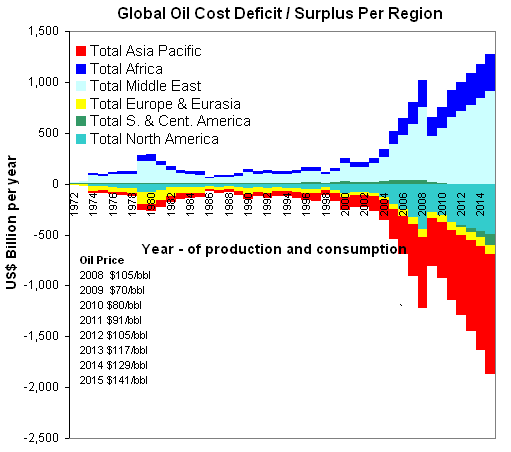278: Trends in Nationalisation, Commodities and Currencies for Property Investors
07-17-2009
 PropertyInvesting.net team
PropertyInvesting.net team
You are interested in investing and making profits - money. Otherwise you would not be visiting this website – propertyinvesting.net. If we are incorrect, we apologise and we do not wish to waste your time. Hence you may choose to leave now.
What we would like to present is a logical rational for why we believe certain investment sectors, countries and currencies will perform above trend and other sectors, currencies and currencies will perform below trend over the medium and long term.
We have just entered an incredible period of upheaval. The historical norms can no longer be relied upon. 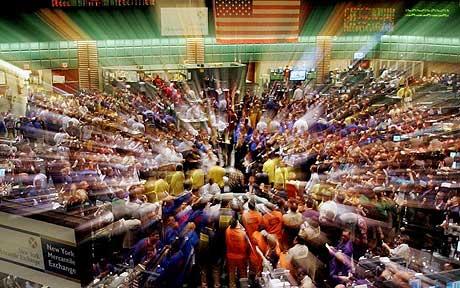 It’s scary because we feel we lack insight and control over our investment – through lack of knowledge, predictive ability and constantly being taken for a ride within stock markets and investment funds.
It’s scary because we feel we lack insight and control over our investment – through lack of knowledge, predictive ability and constantly being taken for a ride within stock markets and investment funds.
We also don’t know who to believe. So many stories. Not many promises. Governments getting heavily involved in propping up failed businesses. With the possibility that all their commendable efforts could either have little impact or make matters worse either in the short or long term – we come to this a little later.
What we would like to do is try and help put a framework around what is likely to happen in the next ten years – some of the failures of policy, how these flaws will lead to market abnormalities and how these will drive asset prices, currencies and investment returns. We hope this will allow you to gauge for yourself what investment are best avoided (threats) and which ones are best to enter or expand (opportunities).
There are a few general trends worth noting – because these will have a significant bearing on how the financial and economic world is likely to pan out in the next ten years. We can use these trends to make predictions thence help guide investment decisions.
Trends - Socialisation and Nationalisation
The period of free market economics in an unregulated sense has ended for now in many western nations. Governments have stepped in to prop up underperforming banks that in previous years would have been declared bankrupt – as soon as the balance sheets were issued. By printing money to prop these companies up, economic weaknesses we believe will lead to lower overall growth as these failed economic entities act as a drag on the overall economy. Pure economic logic: if a bank run by failed management is allowed to continue after massive losses by injections of public money- we are therefore rewarding the failed and weak and penalising the strong and efficient. This makes little economic sense. It is anti-capitalist and pro-socialist. It will drive out competition and lead to higher prices, lower growth, higher inflation and less efficient business practices. Some evidence of this is the fact we now have:
· US interest rates at 0.5% whilst banks are changing property investors and home owner a gigantic 5% (a mark up of 4.5%)
· UK interest rates at 0.5% whilst banks are changing property investors and home owner a gigantic 5% (a mark up of 4.5%)
Logic would suggest that hard working families and property investors are now paying for the failings of the banks, as are the tax payers – because the governments are using tax payer’s money to bail out the banks. Meanwhile, the banks Executives and senior brass stay more or less intact – and no doubt by the end of this year – these top brass will have made stellar profits and be able to reward themselves will large bonuses.
High charges: Meanwhile, property development are finding it almost impossible to raise money, first time buyers almost impossible to get a mortgage and property investors almost impossible to get buy-to-let mortgages. What we have is a broken system whereby banks are lending minimal amounts of money, giving savers almost nothing whilst charging 4.5% over base rate whilst actually hoarding the cash. Meanwhile small businesses and property investors who start to run short of cash are struck down and go broke – however, the large failed zombie banks are saved by the governments. It’s a seriously poor economic situation and we can only pray that it gets some semblance of normality as soon as possible (e.g. competitive lending practices, mortgage rates at no more than 1% over base rate, and failed banks being taken over by strong banks – leading to greater competition from the remaining high performing efficient banks).
Currencies Movements
Canada and Norway Top: As the effects of Peak Oil start to kick-in likely starting in 2010 when an economic recovery is likely to begin in earnest, we expect currencies of oil exporting nations to rise. Their 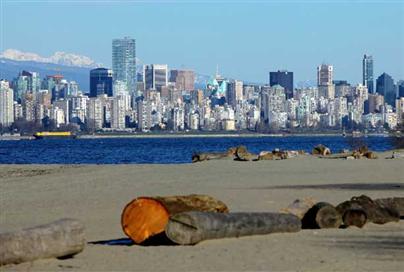 fiscal deficits will drop, their reserves (in the form of oil at high prices) will rise in value and the strength and growth within many of these economies will rise. The currencies will become a safe haven against rising inflation and the declining dollar value. The countries that are likely to have a particularly robust currency in a Peak Oil world of high oil and gas prices are Canada and Norway. Russia may also have a rising currency, albeit it will be more susceptible to large swings depending on the perceived country risk and political factors at any given time. The safe havens will be Norway and Canada. These are the only developed western oil exporting nations. Both countries have low political, country and security risk.
fiscal deficits will drop, their reserves (in the form of oil at high prices) will rise in value and the strength and growth within many of these economies will rise. The currencies will become a safe haven against rising inflation and the declining dollar value. The countries that are likely to have a particularly robust currency in a Peak Oil world of high oil and gas prices are Canada and Norway. Russia may also have a rising currency, albeit it will be more susceptible to large swings depending on the perceived country risk and political factors at any given time. The safe havens will be Norway and Canada. These are the only developed western oil exporting nations. Both countries have low political, country and security risk.
UK: A currency that is also likely to do better than one might expect is UK Sterling because in the next 5-10 years, the UK will only import between zero and 30% of its oil/gas requirements – so is well hedged against Peak Oil for the next ten years. If there is a change of government and thence the public sector spending binge (with all of it’s inefficiencies) ends – then the UK will eventually be able to balance it’s books and thence UK Sterling could rise against the Euro and Dollar. Much depends on reducing the UK deficit and reducing oil/gas consumption rapidly – as the oil/gas production declines 5% per annum. If there was a 15% cut in public sector expenditure in the next 5 years and a 20% drop in gas/oil consumption through conservation measures, then the books would probably balance and UK Sterling value would sky-rocket – even if Peak Oil effects started to be felt globally. As oil/gas prices rise, the UK oil/gas reserves value will increase proportionally to those countries that have to import all their oil/gas (e.g. Germany, Spain, Italy, Greece, Portugal, France).
Middle East: Currencies in the Middle East are difficult to predict. If oil prices rise, this will probably help the regions political and security stability – in simple terms – if countries make a lot of money from oil revenues and there is less unemployment, there are less disaffected people that can cause security issues. The worrying thing in the Middle East is low oil prices, because deficits increase, social spending reduces, unemployment rises, there are more unhappy people that can then cause security problems. If the USA then has a hands-off approach as appears increasingly likely, festering bad feeling at a local level can lead to a worsening security situation. Take a look at Dubai – a boom city of global prestige and proportions and a very safe place to live – this is a shining example of how prosperity can lead to security – compare this to other countries in the region – there is a general trend-correlation between improved prosperity and improved security. Notice how Dubai boomed from 1999 to 2008 when oil prices rose from $9/bbl to $147/bbl. There are very few examples of countries that have huge oil wealth and small populations that are not secure and prosperous. With regret, we expect to see an increase in security problems in Iraq as the US and UK forces are pulled out. The improved security that has been on an improving trend for the last five year could regrettably see a reversal.
Mineral Wealth: The currencies of mineral rich countries will also prosper if commodities prices rise – 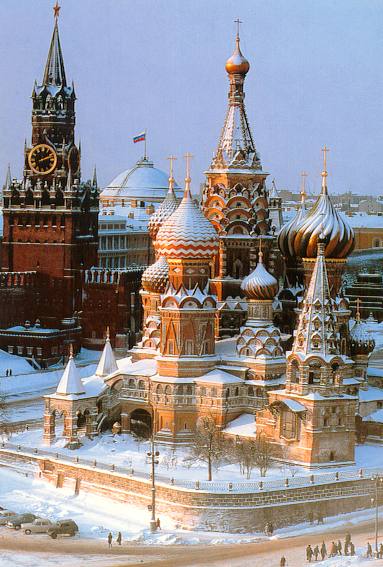 gold, copper, iron, lead and other metals normally rises as oil prices rise. We expect no difference in the next ramp up in oil prices. Countries that are particularly positively exposed to mining and high metals-mineral prices are:
gold, copper, iron, lead and other metals normally rises as oil prices rise. We expect no difference in the next ramp up in oil prices. Countries that are particularly positively exposed to mining and high metals-mineral prices are:
· Australia
· South Africa
· Mongolia
· Bolivia
· Chile
· Canada
· Russia
· USA
USA, Australia, Russia, Canada and South Africa also have giant coal reserves – coal is used for power generation, so as oil prices sky-rocket, these countries can use their coal production and coal exports to offset higher oil costs. For Canada and Russia, these countries also export oil and gas, so they win all around. Australia also has vast production of gas (LNG), shale-coal bed methane gas and significant though declining oil, so is fairly well hedged against high oil prices. Furthermore, it’s gas (LNG) coal and minerals are on the doorstep of the biggest growing consumer of them all – China, and also fairly close to India. Hence Australia, despite its high oil usage, is a real winner in a high commodity priced world. Whether it is Perth, Melbourne, Sydney or the Gold Coast of Queensland – all these areas should benefit as higher commodities prices kick-in. With massive land resources, gas, coal, oil, minerals and a small population with well educated workforce, with good security and low political risk, expect the Australian economy to go from strength to strength.
Worst Growth Rates
The lowest growth rates will likely be in countries that have:
· no significant coal, oil, gas, minerals, forest and land resources
· aging populations
· large tourist businesses that rely on low cost airline travel
· declining birth rate and declining populations
· do not rank high in low cost manufacturing
· do not rank high in banking and financial services
· high cost labour and high social-retirement cost (small working populations)
Beautiful as they are (people and history/scenery) logic would the countries that fit all these negative criteria are:
· Spain
· Italy
· Greece
Second homes, construction, holidays and tourism are almost certainly not enough to create growth in these countries when oil and commodities prices rise. Their oil, coal, gas and metals import bills will be sky high when compared to overall GDP and the working populations – taxes will need to rise, borrowing risk and growth will decline. They may be forces to leave the Euro currency because the relatively high interest rates and currency value set by France and Germany will not be enough to stimulate these weak economies. The days of 3% GDP growth for these countries we believe come to an end – there will be a temporary boost from low commodity prices this year, but when commodities prices rise, these country will be hammered. Hence – unless you want a beautiful holiday home for yourself – best avoid property investing in these countries.
Highest Growth Rates
So in summary, what a property investor should be looking for is just the opposite:
· significant coal, oil, gas, minerals, forest and land resources
· relatively young population or balanced population
· small population compared to resources (land, oil, gas, coal, metals, water)
· business that does not rely on low cost airline travel
· healthy birth rate and increasing population
· rank relatively high in low cost manufacturing
· rank relatively high in banking and financial services
· low cost labour and not so high social-retirement cost (large working populations)
This is why we like:
· Canada
· Australia
· Norway
· UK (London and southern England)
Tax Havens
As western governments increase taxes on the wealth as the wave of socialist governments sweeps 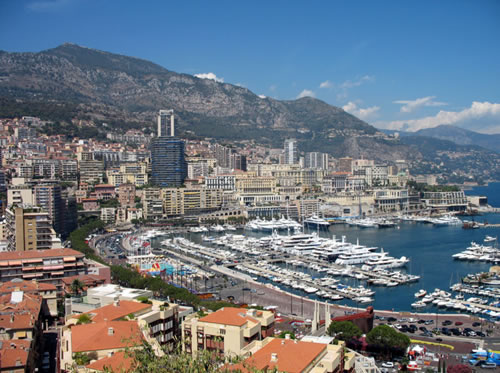 through – expect very wealthy very high net worth individuals to establish bases in low tax countries and havens. More small niche and high growth companies will establish HQs in these tax havens as well. The differential between rich and poor is not likely to reduce. The net affect of higher taxation will only be that the very wealthy will set up in these tax havens. This has started to happen as taxes in the UK and USA have risen in recent years. And surprise, surprise, the property prices in the tax havens has been rising whilst in the high taxed countries they have been dropping. So below is a list of the tax havens:
through – expect very wealthy very high net worth individuals to establish bases in low tax countries and havens. More small niche and high growth companies will establish HQs in these tax havens as well. The differential between rich and poor is not likely to reduce. The net affect of higher taxation will only be that the very wealthy will set up in these tax havens. This has started to happen as taxes in the UK and USA have risen in recent years. And surprise, surprise, the property prices in the tax havens has been rising whilst in the high taxed countries they have been dropping. So below is a list of the tax havens:
· Monaco
· Switzerland
· Luxembourg
· Jersey and Guernsey
· Isle of Man
· Bermuda
· Lichtenstein
London: London is also an international tax haven, though it has lost much of it’s attractiveness for non domiciles in the last few years. For UK citizens though, the recent tax hike to 50% from April 2010 for  high earning employees (wages, bonuses, share options) may well lead some UK financiers, hedge fund managers and wealthy small businessmen to set up in one of the above tax locations. It’s difficult to predict whether this will have a seriously detrimental effect on prime central London property prices – we rather think it will not because of other international money coming into the UK because the UK is a relatively safe haven and good base for wealthy international business people (African, Middle Eastern, Asian and Russian). But it’s difficult to say with any certainty.
high earning employees (wages, bonuses, share options) may well lead some UK financiers, hedge fund managers and wealthy small businessmen to set up in one of the above tax locations. It’s difficult to predict whether this will have a seriously detrimental effect on prime central London property prices – we rather think it will not because of other international money coming into the UK because the UK is a relatively safe haven and good base for wealthy international business people (African, Middle Eastern, Asian and Russian). But it’s difficult to say with any certainty.
We hope you have found this Special Report of interest. Please ask yourself – “does it make sense” – we have tried to be as common sense and objective as possible. You probably won’t read this type of material in a popular newspaper or magazine. We are attempting to say it how it is and how it could be – rather than print what one would necessarily want to hear. And remember, we present these views for the benefit of property investors and other investors that are interested in making higher significantly investment returns on an individual basis – for individual entrepreneurs.
Please forward to any friends or family members that you think could be interested. If you have any comments, please contact us on enquiries@propertyinvesting.net
Peak Oil - World Oil Production Consumption
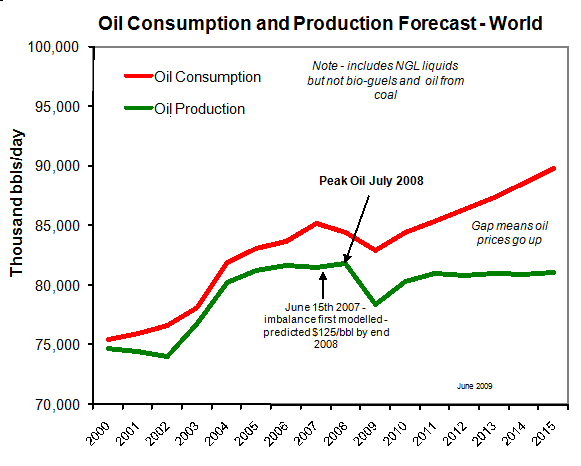
Gas Pump Prices - are likely to rise in 2010 onwards

